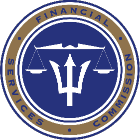

What is Financial Literacy and Why Does It Matter?
When you hear the term “being financially literate” we are talking about the ability of a person to understand and manage their personal finances. This means knowing how to make smart choices with your money, from budgeting to saving, and even investing. Given some of the challenges with the economy right now, the significance of being financially literate has increased. Knowing how to do this helps in avoiding costly mistakes, staying out of debt, and achieving financial goals, which applies whether in terms of buying a home, retiring comfortably, or starting a business.
Financial literacy also plays a crucial role in protecting you from scams, which unfortunately can be fairly common, especially during times of economic uncertainty. Without this knowledge and the ability to determine valid sources of information, you may easily fall victim to offers that seem too good to be true. A strong understanding of how money works will help you recognize red flags and avoid these pitfalls.
Being financially literate generally gives you peace of mind. Instead of feeling overwhelmed by bills, loans, and other financial responsibilities, you are better able to take control of your money and even plan ahead when needed. The good news is that this isn’t something you need a degree to master. It’s a skill that anyone can learn. By understanding basic concepts like budgeting, saving, and credit management, you’ll be better equipped to make sound decisions to positively impact your life.
The benefits of financial literacy are clear:
- It helps you take control of your financial future,
- protect yourself from scams, and
- create a solid foundation for long-term financial success.
Whether you’re starting from scratch or looking to build on what you already know, improving your financial knowledge will serve you well for years to come.
Written by Gayle Marshall, Director - Strategic Projects



